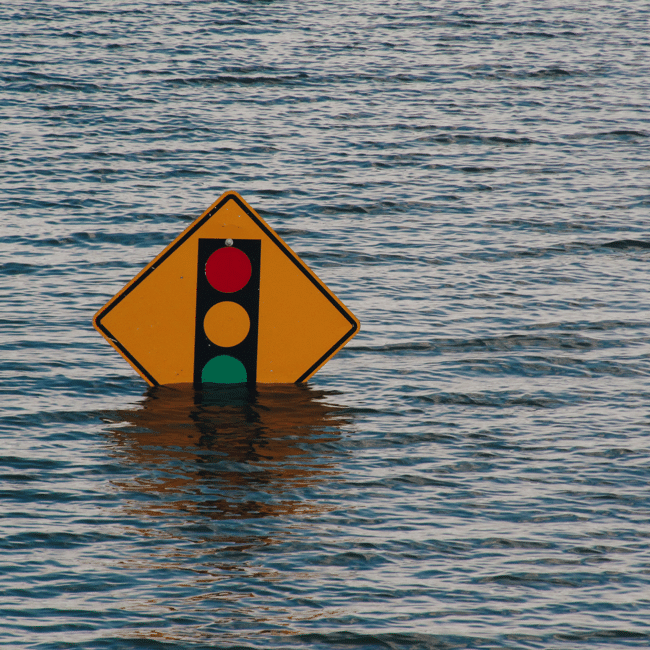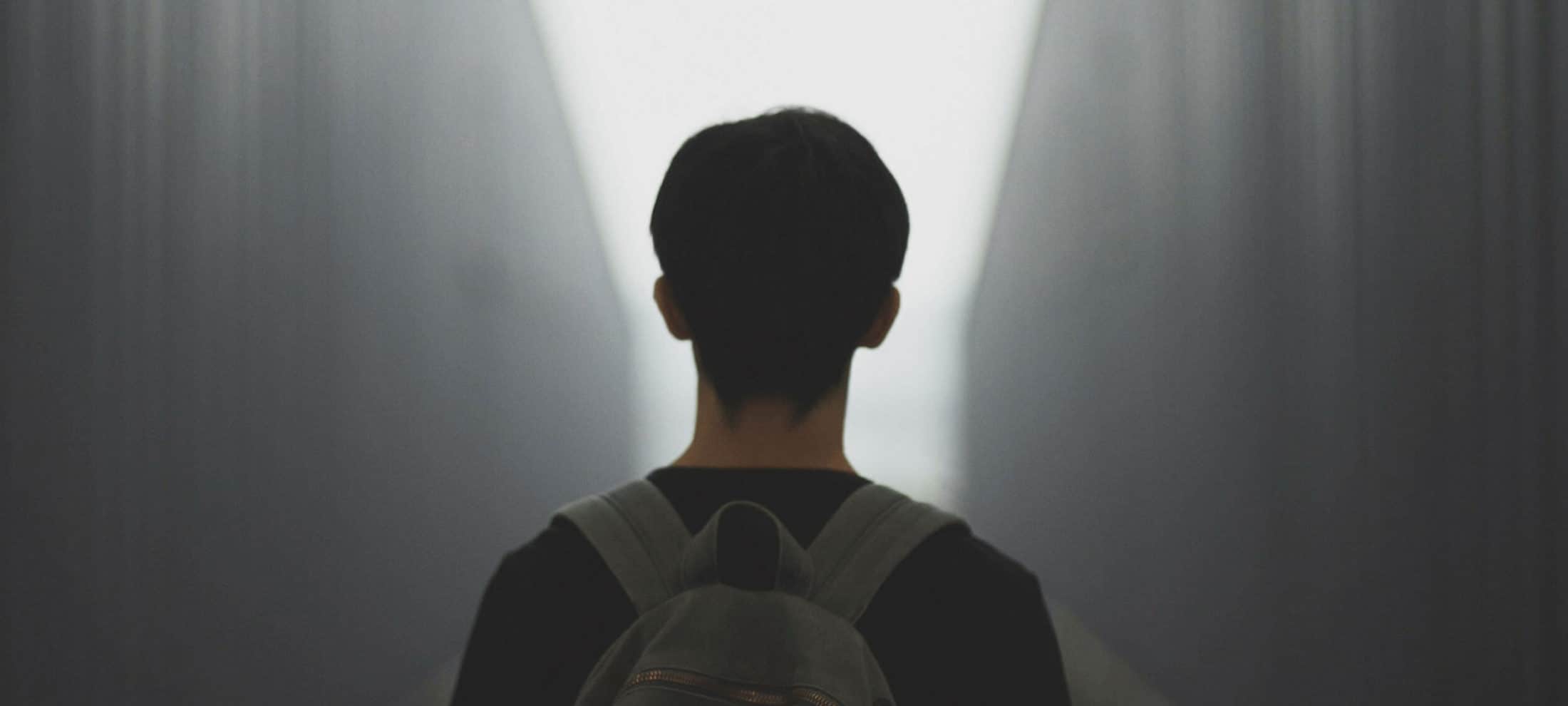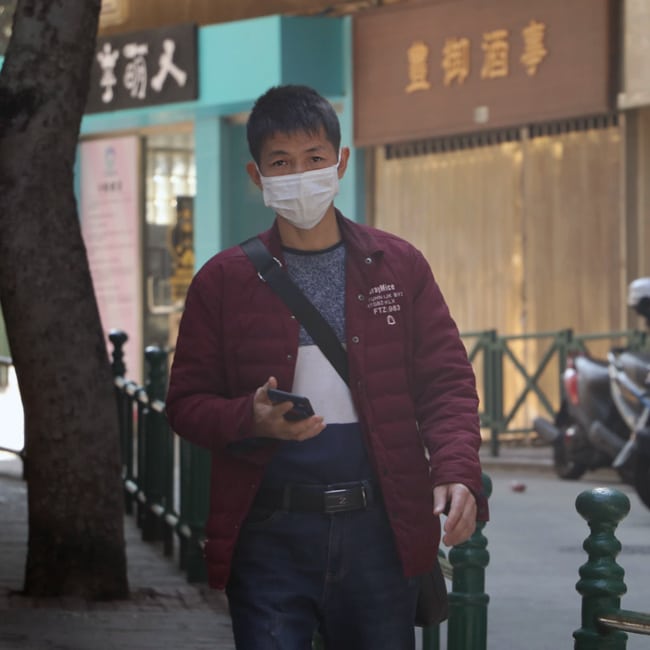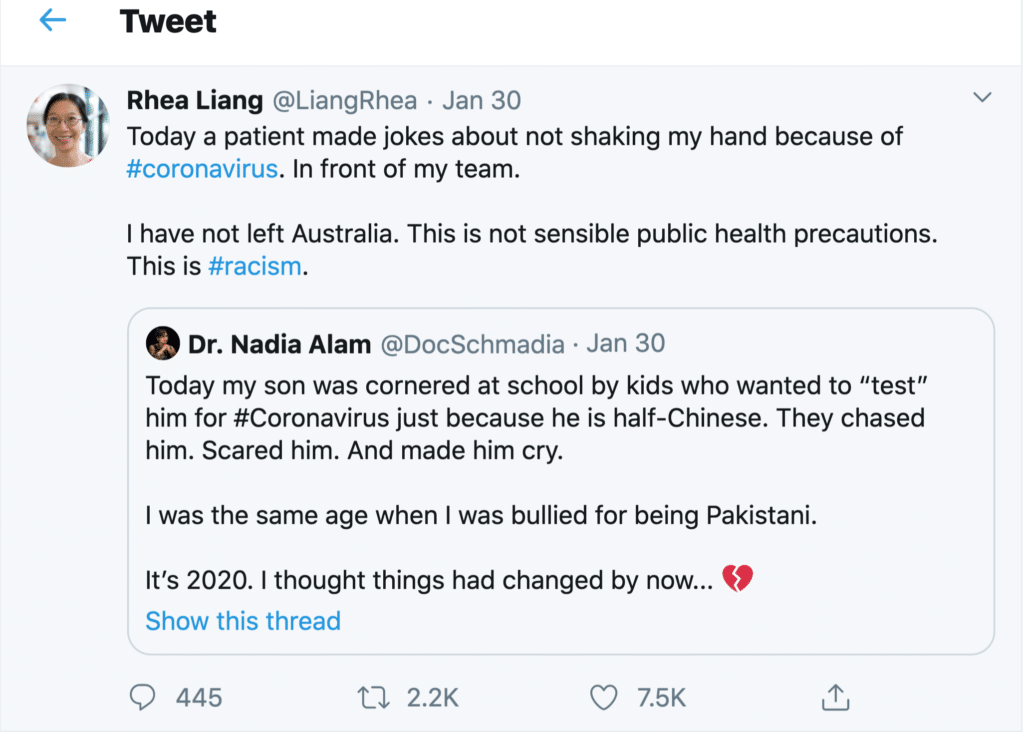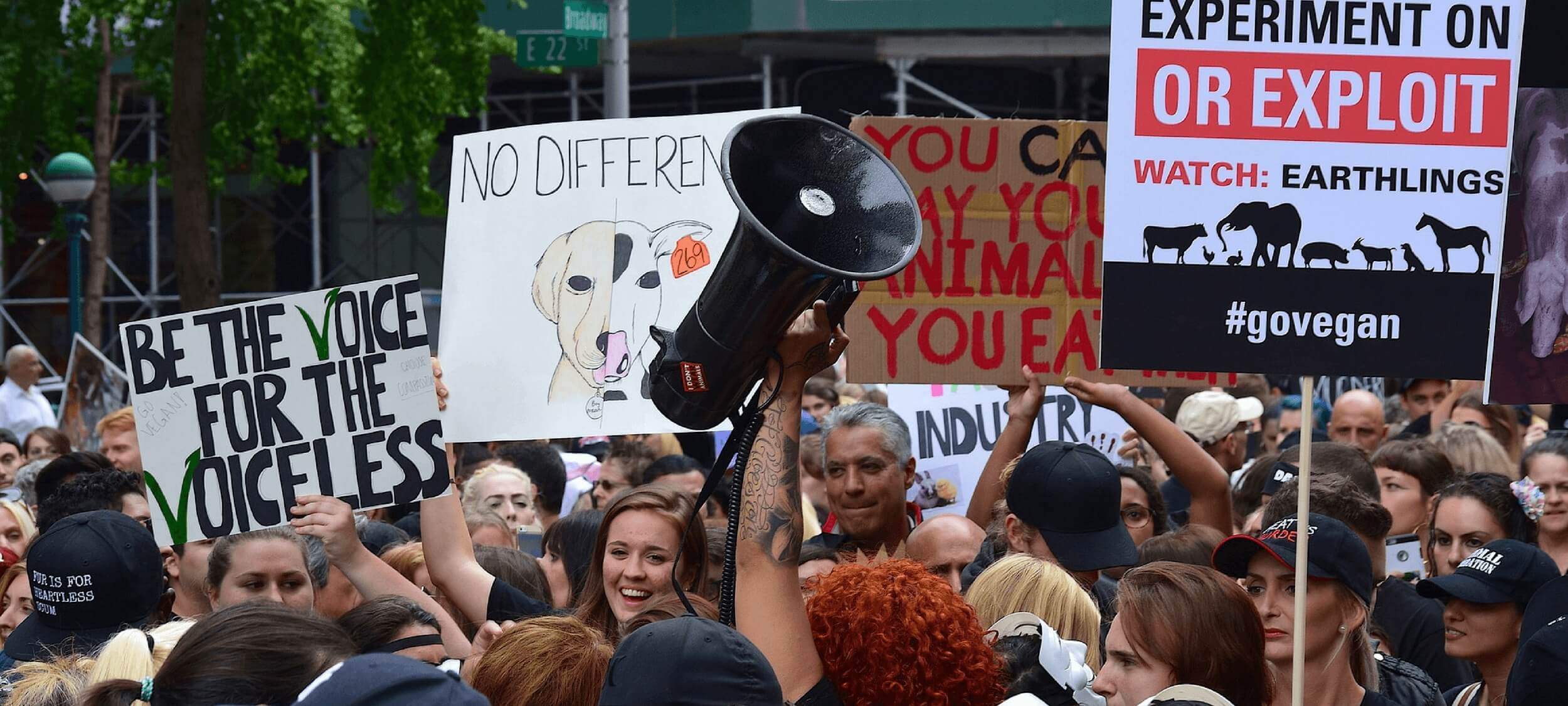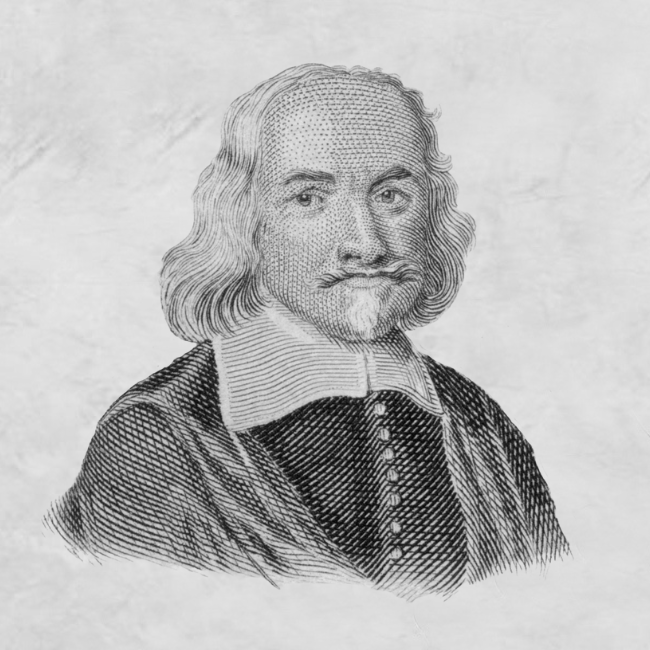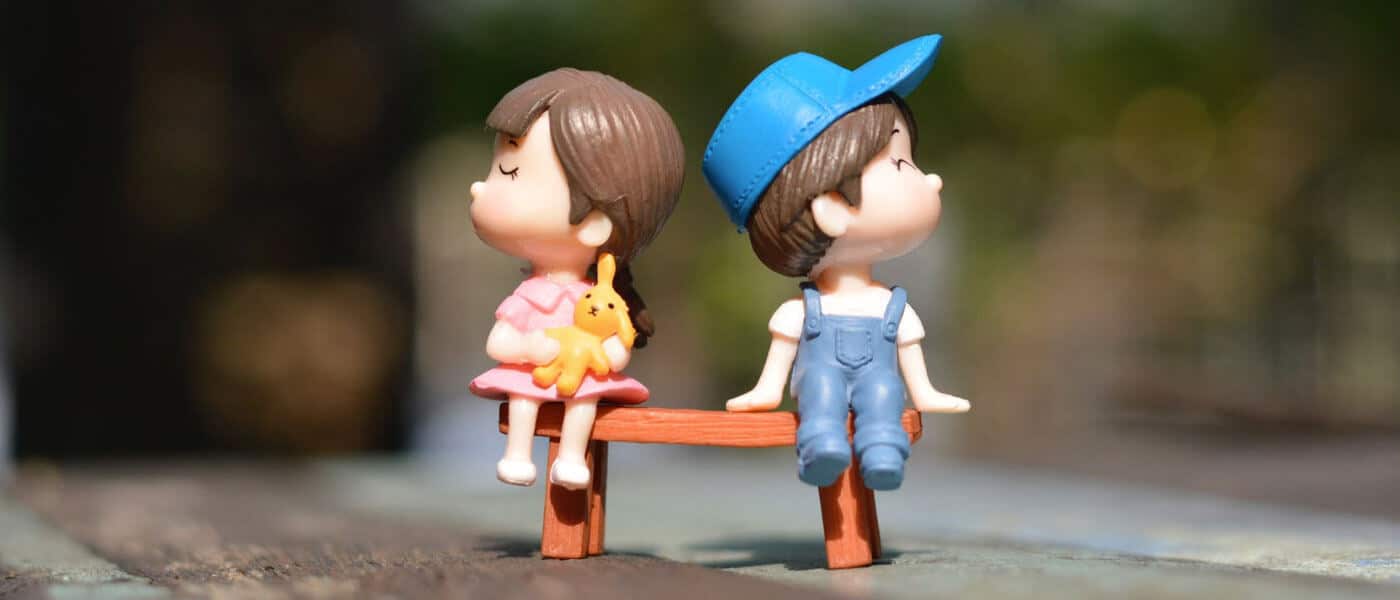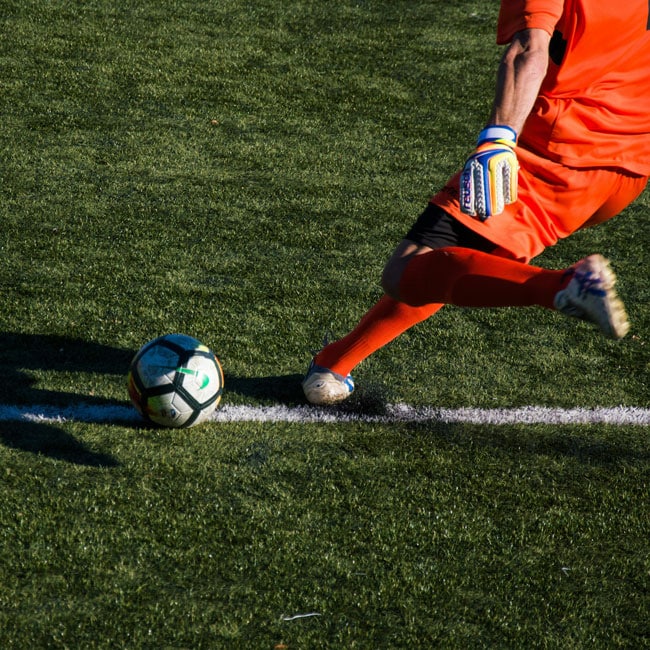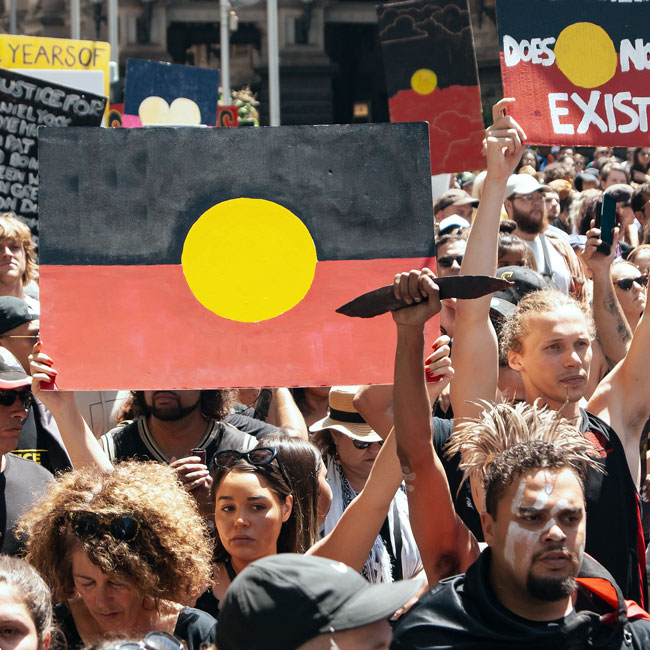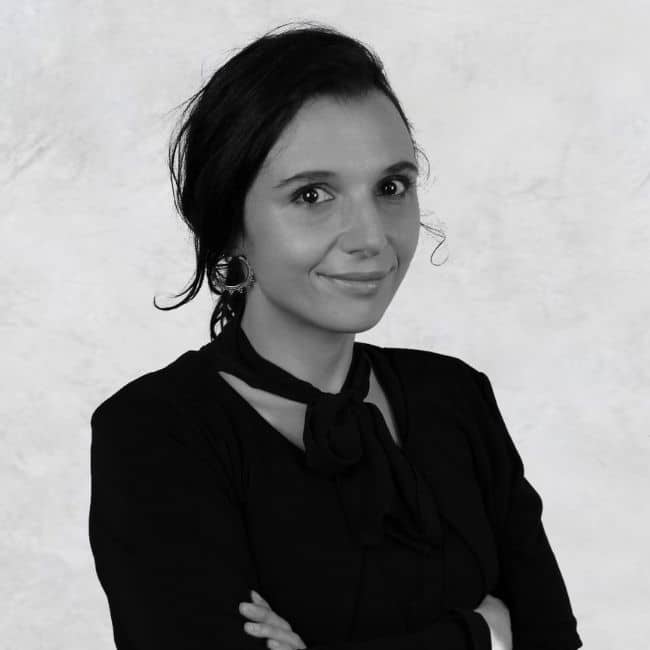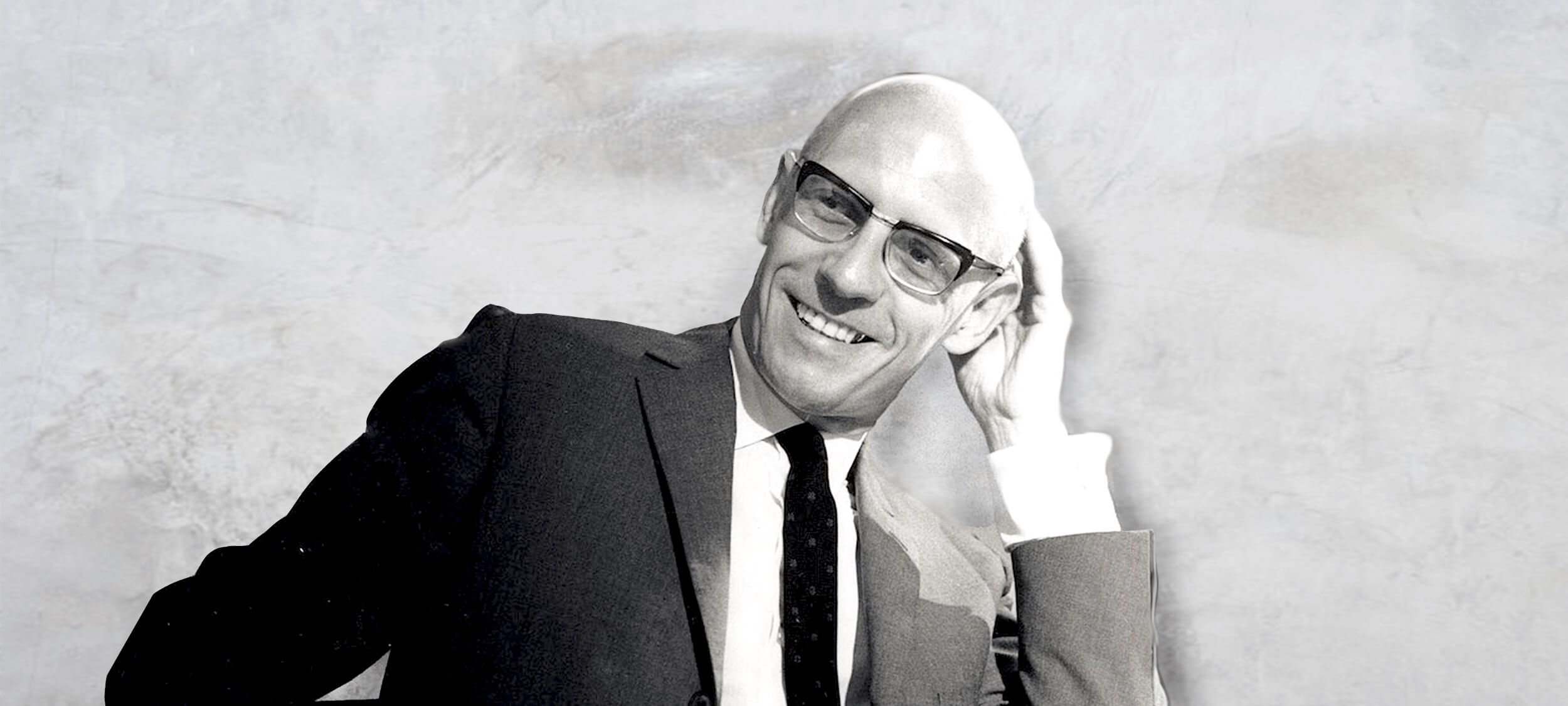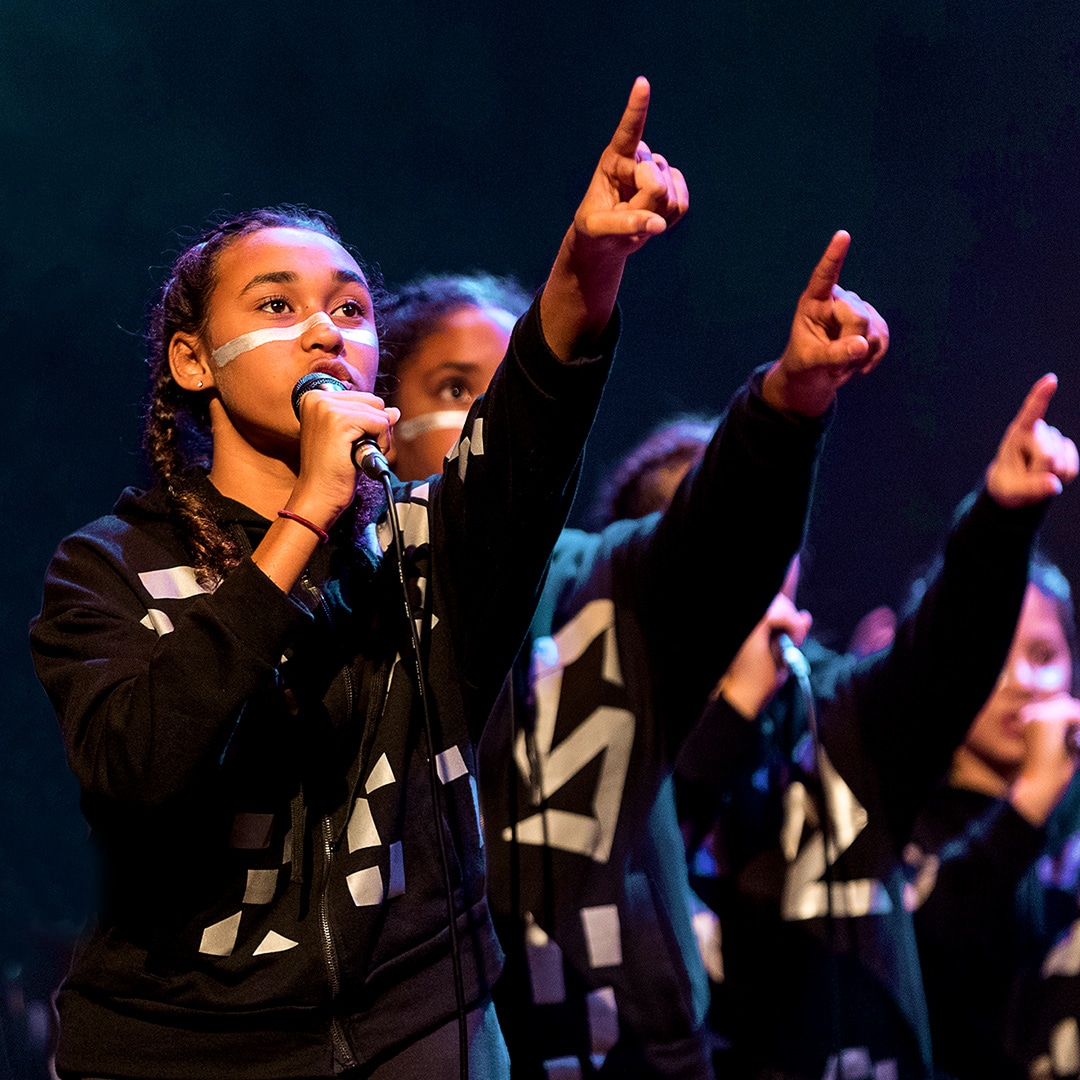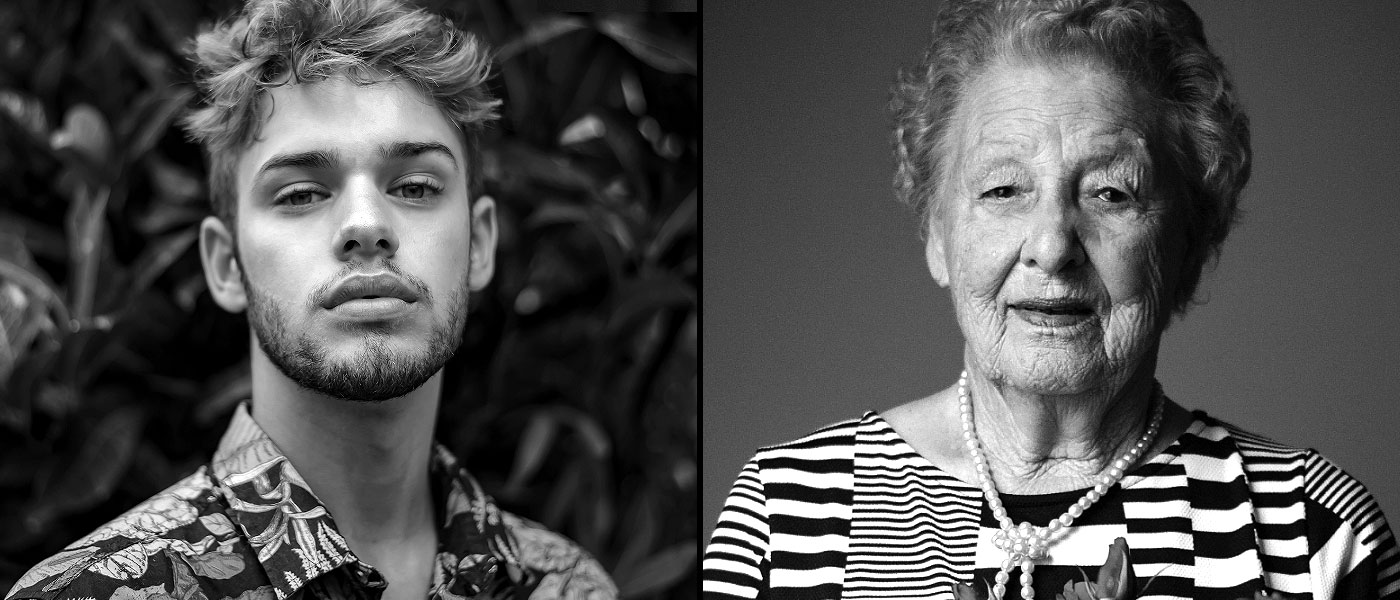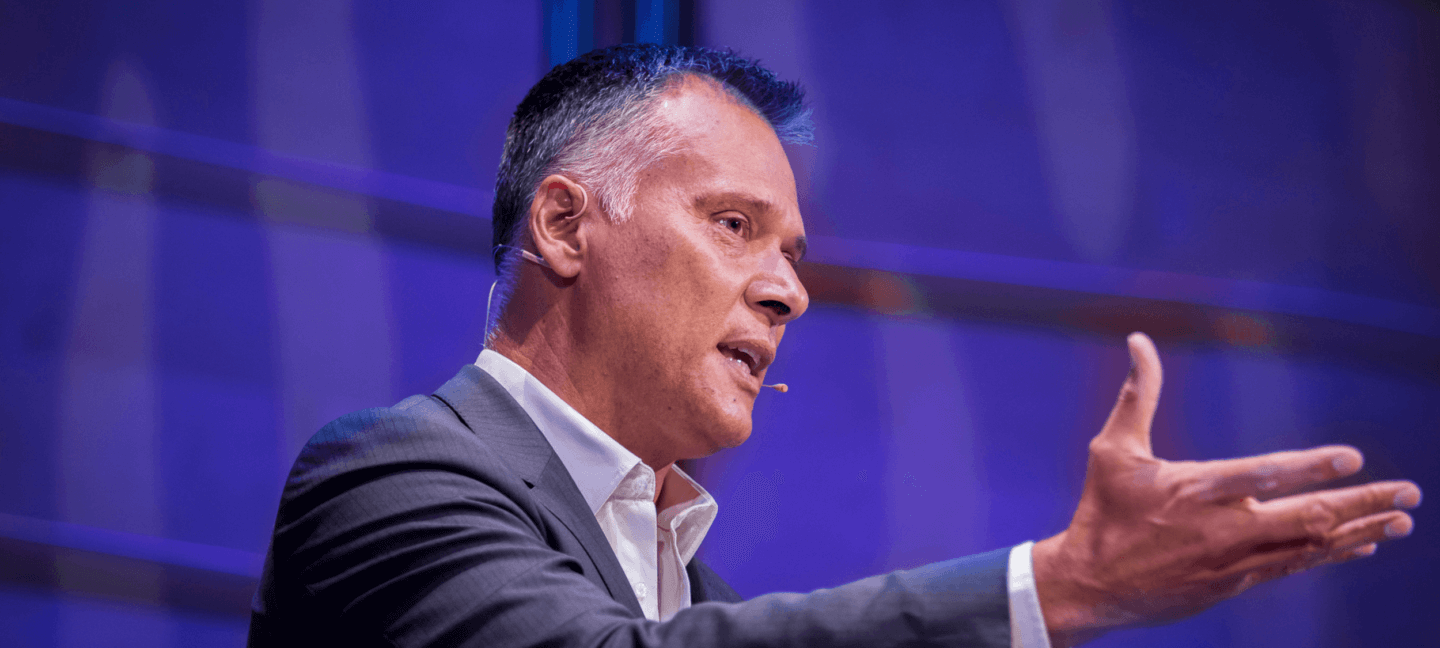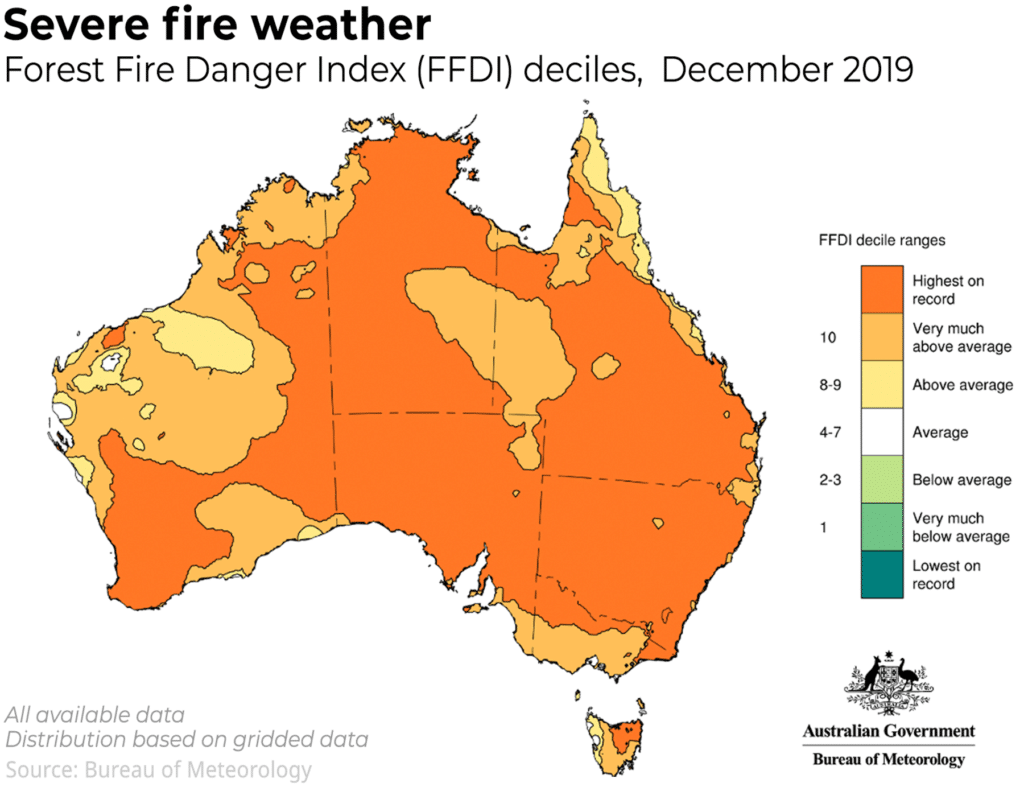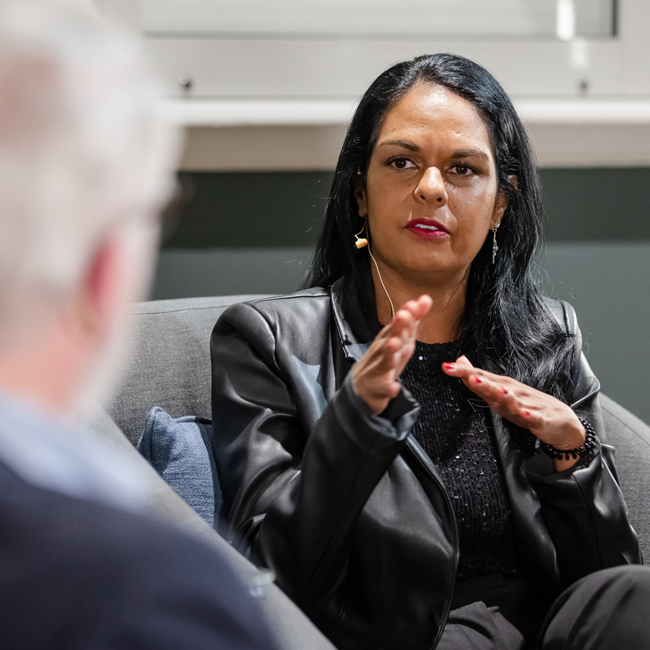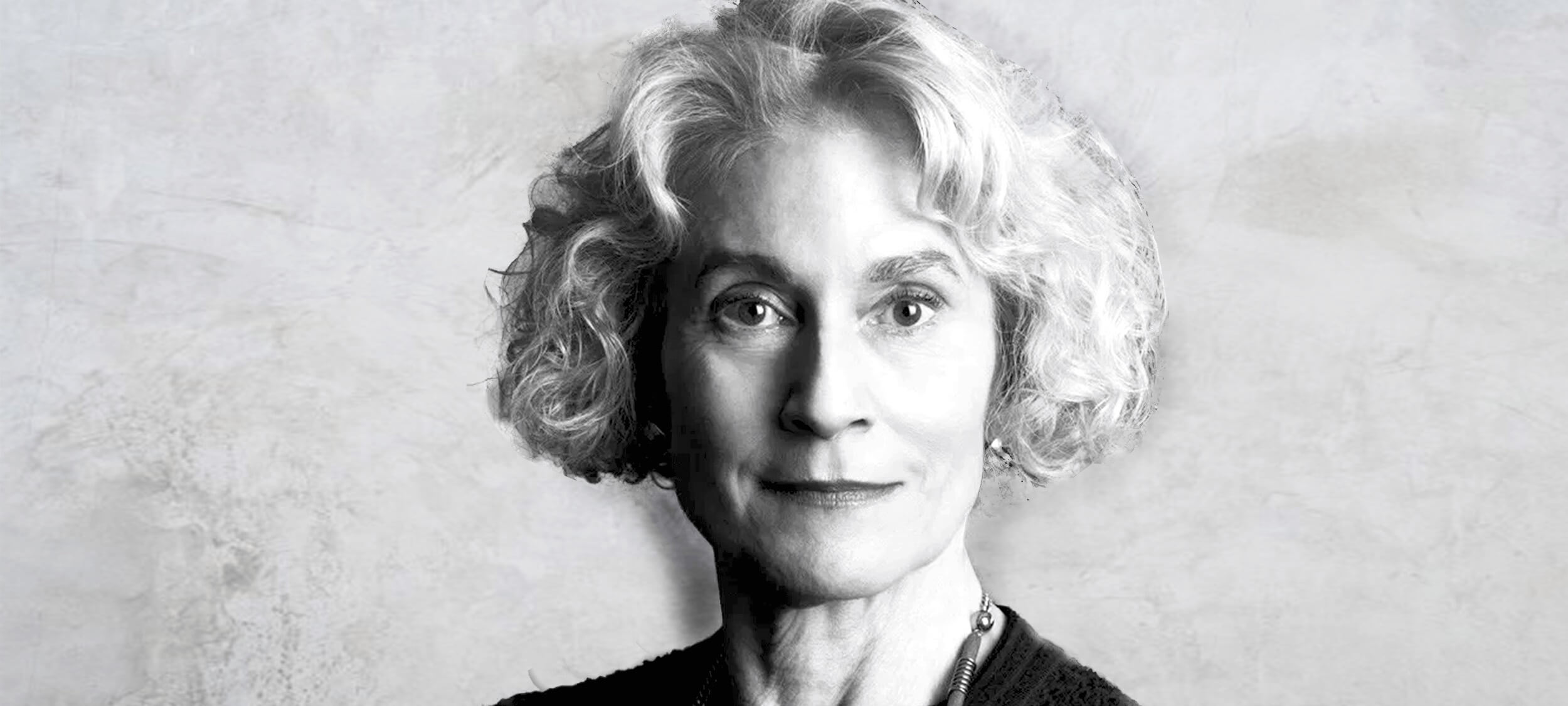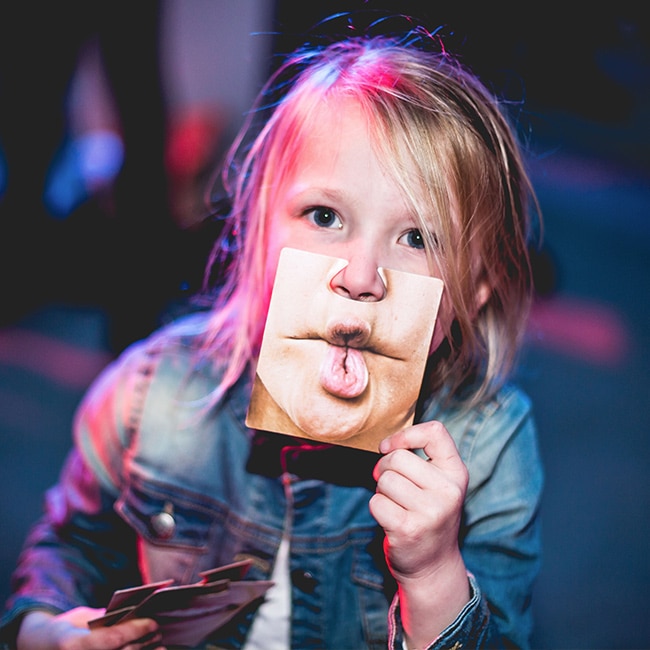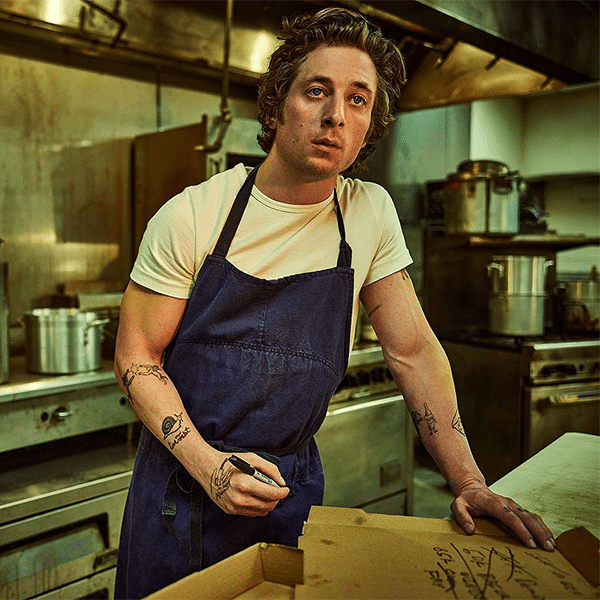Ethics in a time of coronavirus

Ethics in a time of coronavirus
Opinion + AnalysisHealth + WellbeingPolitics + Human RightsRelationships
BY Simon Longstaff The Ethics Centre 12 MAR 2020
The response to the novel coronavirus COVID-19 (now called severe acute respiratory syndrome coronavirus 2, or SARS-CoV-2) has been fascinating for a number of reasons. However, two matters stand out for me.
The first matter concerns the way that our choice of narrative framework shapes outcomes. From what we know of SARS-CoV-2 it is highly infectious and produces mortality rates in excess of those caused by more familiar forms of coronavirus, such as those that cause the common cold. However, given that ‘novelty’ and ‘danger’ are potent tropes in mainstream media, most coverage has downplayed the fact that human beings have lived with various forms of coronavirus for millennia.
The more familiar we are with a risk, the more likely we are to manage it through a measured response. That is, we avoid the kind of panicky response that leads people to hoard toilet paper, etc. We can see how a narrative of familiarity works, in practice, by comparing the discussion of SARS-CoV-2 with that of the flu.
John Hopkins reports that an estimated 1 billion cases of flu (caused by a different type of virus) lead to between 291,000 and 646,000 fatalities worldwide each year. That is the norm for flu. Yet, our familiarity with this disease means that the world does not shut down each flu season. Rather than panic, we take prudent measures to manage risk.
I do not want to understate the significance of SARS-CoV-2, nor diminish the need for utmost care and diligence in its management. This is especially so given human beings do not possess acquired immunity to this new virus (which is mutating as it spreads). Furthermore, SARS-CoV-2 is currently thought to generate mortality rates greater than most strains of the flu.
However, despite this, I wonder if society would have been better served by locating this new virus on the spectrum of diseases affecting humanity – rather than as a uniquely dangerous new threat.
This brings me to the second matter of interest that I think worth mentioning. Like many others, I have been struck by the universal commitment of Australia’s leading politicians to legitimise their decisions by relying on the advice of leading scientists.
I do not know of a single case of a politician refusing to accept the prevailing scientific consensus. As far as I know, there has been nothing said along the lines of, “all scientific truth is provisional” or “some scientists disagree”, etc. I have not heard politicians denying the need to take action because it might put some jobs at risk. Nor has anyone said that action is futile ‘virtue signalling’ because a tiny nation, like Australia, can hardly affect the spread of a global pandemic.
As such, I have been left wondering how to explain our politicians’ commitment to act on the basis of scientific advice when it comes to a global threat such as presented by SARS-CoV-2 – but not when it comes to a threat of equal or greater consequence such as presented by global warming.
Taken together – these two issues raise many important questions. For example: are we only able to mount a collective response under conditions of imminent threat? If so, is this why politicians so often play upon our fears as the means for securing our agreement to their plans? Does this approach only work when the risks can be framed in terms of our individual interests – and perhaps those of our immediate families – rather than the common good? Or, more hopefully, can we embrace positive agendas for change?
For my part, I still believe that people are open to good arguments … that they can handle complex truths – if only they are presented in accessible language by people who deserve to be trusted. It’s the work of ethics to make this possible.
Ethics in your inbox.
Get the latest inspiration, intelligence, events & more.
By signing up you agree to our privacy policy
You might be interested in…
Opinion + Analysis
Climate + Environment, Politics + Human Rights
Who is to blame? Moral responsibility and the case for reparations
Opinion + Analysis
Relationships
Agree to disagree: 7 lessons on the ethics of disagreement
Opinion + Analysis
Politics + Human Rights
Enough and as good left: Aged care, intergenerational justice and the social contract
Explainer
Relationships
Ethics Explainer: Conscience
BY Simon Longstaff
Simon Longstaff began his working life on Groote Eylandt in the Northern Territory of Australia. He is proud of his kinship ties to the Anindilyakwa people. After a period studying law in Sydney and teaching in Tasmania, he pursued postgraduate studies as a Member of Magdalene College, Cambridge. In 1991, Simon commenced his work as the first Executive Director of The Ethics Centre. In 2013, he was made an officer of the Order of Australia (AO) for “distinguished service to the community through the promotion of ethical standards in governance and business, to improving corporate responsibility, and to philosophy.” Simon is an Adjunct Professor of the Australian Graduate School of Management at UNSW, a Fellow of CPA Australia, the Royal Society of NSW and the Australian Risk Policy Institute.
BY The Ethics Centre
The Ethics Centre is a not-for-profit organisation developing innovative programs, services and experiences, designed to bring ethics to the centre of professional and personal life.
CoronaVirus reveals our sinophobic underbelly

CoronaVirus reveals our sinophobic underbelly
Opinion + AnalysisHealth + WellbeingPolitics + Human RightsRelationships
BY Simon Longstaff The Ethics Centre 6 MAR 2020
A virus knows no race. It is indifferent to your religion, your culture and your politics. All a virus ‘cares about’ is your biology … For that, one human is as good as any other.
Despite this, it’s easy enough to find recent reports of Australians experiencing discrimination for no reason other than their Chinese family heritage.
Such attacks are examples of racism – the irrational belief that an individual or group possesses intrinsic characteristics that justify acts of discrimination. That this is occurring is not in doubt.
For example, Australia’s Chief Medical Officer, Professor Brendan Murphy has seen enough of such behaviour to make explicit reference to the phenomena, labelling xenophobia and racial profiling as “completely abhorrent”.
Professor Murphy’s position is one of principle. However, there is also a practical aspect to his admonition. Managing the risks of an outbreak of a pathogen like the novel coronavirus COVID-19 requires health officials and the wider community to make rational choices based on an accurate assessment of risk. Racism is irrational. It distorts judgement and draws attention away from where the risks really lie. Ethically it is wrong. Medically, it is idiotic and dangerous.
This rise in racism, prompted by the emergence of COVID-19, reveals how thin the veneer of decency is that keeps latent racist tendencies in check. It seems that, given half-a-chance, the mangy old dog of Sinophobia is ready to raise its head, no matter how long it has laid low.
Of course there is nothing new about Sinophobia in Australia. Fear of the ‘yellow peril’ is woven through the whole of Australia’s still-unfolding colonial history. Many factors have stoked this fear, including: persistent doubts about the legitimacy of British occupation of an already settled continent, ignorance of (and indifference to) Chinese history and culture, the European cultural chauvinism that such ignorance fosters, the belief that numerical supremacy is, ultimately, a determining force in history, the need to find scapegoats when the dominant culture falters, and so on.
Whatever the historical cause of this persistent fear, the present ‘trigger’ is the inexorable rise of China as an economic and military super power – a power that is increasingly inclined to demand (rather than earn) deference and respect.
The situation is made more volatile by the growing tendency for the China of President Xi Jinping to link its power and success to what is uniquely ‘Chinese’ about its history and character. Add to this a broadly accepted Chinese cultural preference for harmony and order and the nation is often presented as if it is a ‘monolithic whole’ – not just in terms of its autocratic government but in its essential character.
Unfortunately, all of this feeds the beast of racist prejudice. Those who feel threatened by the changing currents of history seize on even the flimsiest threads of difference and use these to weave a narrative of ‘us’ and ‘them’ – in which others are presented as being essentially and irremediably different. This is the racists’ central trope – that difference is more than skin deep! Biology makes you one of ‘us’ or you are not.
It’s nonsense. Yet, it’s a nonsense that sticks in some quarters, especially during times of uncertainty such as this; when the general public is feeling betrayed by the elites, when institutions have lost trust and have weakened legitimacy and when increasing numbers of people fear for their future and that of their families.
Unfortunately, tough times provide fertile ground for politicians who are willing to derive electoral dividends by practising the politics of exclusion. It is a cheap but effective form of politics in which people define their shared identity in terms of who is kept outside the group.
It is far harder to practise the politics of inclusion – in which disparate groups find a common identity in the things they hold in common. This too can work, but it takes great energy and superior skills of leadership to achieve this outcome. Yet, it is the latter approach that Australia must look for, if only as a matter of national self-interest.
This is because racist attacks against Australians of Chinese descent also have a significant national security dimension. As I have written elsewhere, social cohesion is a vital component of a nation’s ‘soft power’ when defending against foes who covertly seek to ‘divide and conquer’.
The risk of such attacks is increasing as the world drifts back to a pre-Westphalian strategic environment in which the international, rules-based order breaks down and nations freely interfere with the domestic affairs of their rivals. In these circumstances, the last thing Australia needs is deepening divisions based on spurious beliefs about supposed racial deliveries.
Those who create or exploit those divisions wound the body politic, weaken our defences and undermine the public interest.
All of that said, it is important not to overstate the dimensions of the problem. Australia is a notable successful multicultural nation where harmonious relations prevail. This is despite there being an undercurrent of racism that has been more or less visible throughout Australia’s modern history.
Racism is never justified. Not by the fact that it is found to the same degree in other societies, and not even when its manifestation is rare. Although it offers little comfort, it should also be acknowledged that discrimination is as much a product of other forms of prejudice concerning religion, gender, culture, etc.
We have the capacity to do and be better. This is a choice we can and should make for the sake of our fellow citizens – whatever their background – and in the interests of the nation as a whole.
So, given that China is not likely to take a backwards step and Australians of Chinese background cannot (and should not) disguise their heritage, how should we respond to the latest bout of Sinophobia?
Attack prejudice with fact
A first step should be to follow the example of Australia’s Chief Medical Officer and attack prejudice with the facts. Professor Murphy’s example showed how facts about medicine can be deployed to calm fears and neutralise racist myths. This approach should be extended to other areas. For example, more should be known of the long history and extraordinary contribution of Australians of Chinese heritage.
This account should not merely tell the story of elite performance, economic contribution, etc. It should also speak of those who have fought in Australia’s wars, built its infrastructure, educated its children, nursed its sick … and so on. In short, we need to see more of the extraordinary in the ordinary.
Reframe the narrative
Second, we need to reframe the narrative about China and the Chinese. Today, most commentary portrays China as both a security threat and an economic enabler. It is both. However, this is only a small part of the story.
For the most part, we see little of the life of the Chinese people. We are largely ignorant of the achievements of their remarkable civilisation. One might think that the closeness of the economic relationship might be a positive factor. However, regular reporting about Australia’s economic dependence on China, is not helping the situation.
I know that this will seem counter-intuitive to some. However, the more we speak of Chinese students propping up our universities, of Chinese tourists sustaining our tourism industry and of Chinese consumers boosting our agricultural exports … the more it makes it sound as if the Chinese are little more than an economically essential ‘necessary evil’ – a ‘commodity’ that comes and goes in bulk.
This view of the Chinese negatively influences attitudes towards Australia’s own citizens of Chinese descent. Fortunately, a solution to the ‘commodification’ of the Chinese is at hand, if only we wish to embrace it. The large number of Chinese students who study in Australia offer an opportunity to build better understanding and stronger relationships.
Unfortunately, the Chinese student experience in Australia is reported not to be as positive as it should be. Too many arrive without the English language skills to engage more widely with the community. Too many find themselves lonely and isolated. Too many find solace in sticking with those they know and understand. With some justification, large numbers feel as if they are little more than a ‘cash cow’.
Invest in ethical infrastructure
Third, we need to invest in Australia’s own ‘ethical infrastructure’ – much of which is damaged or broken. We need to repair our institutions so that they act with integrity and merit the trust of the wider community. We need to work on the core values and principles that underpin social cohesion.
Part of this task must be to come to terms with the truth about the colonisation of Australia. This is not to invoke the ‘black arm band’ view of history. The truth is both good and bad. However, whatever its character, our truth remains untold. I sincerely believe that Australia’s ‘soft power’ is weaker than it would otherwise be, if only we could address this unfinished business.
Alleviate fear
Fourth and finally, the measures outlined above will be ineffective unless we also name the latent fears of average Australians. People across the nation want these ‘bread and butter’ issues to be acknowledged and addressed:
- How safe is my job?
- If I lose my current job, will I find another?
- If I can’t find another job, how will I pay my bills?
- Will I be cared for if I get sick?
- Will my children get an education that equips them to live a good life in the future?
- Can I move about with relative ease and efficiency?
- How will the nation feed itself?
- Are we safe from attack?
- Who can step in cases of natural disaster or man-made calamity?
- Why are our leaders not held to account when we are?
- Why can’t I be left alone to do as I please?
- Who cares about me and those I care about?
Failure to speak to the truth of these deep concerns leaves the field wide open for the lies of those who would stoke the fires of racism.
Unravel the complexities of the political relationship between China and Australia at ‘The Truth About China’, a panel conversation at The Festival of Dangerous Ideas, Saturday 4 April. Tickets on sale now
Ethics in your inbox.
Get the latest inspiration, intelligence, events & more.
By signing up you agree to our privacy policy
You might be interested in…
Opinion + Analysis
Climate + Environment, Health + Wellbeing
How should vegans live?
Opinion + Analysis
Politics + Human Rights, Relationships
Why we should be teaching our kids to protest
Big thinker
Politics + Human Rights
Big Thinker: Thomas Hobbes
Opinion + Analysis
Climate + Environment, Politics + Human Rights
Who is to blame? Moral responsibility and the case for reparations
BY Simon Longstaff
Simon Longstaff began his working life on Groote Eylandt in the Northern Territory of Australia. He is proud of his kinship ties to the Anindilyakwa people. After a period studying law in Sydney and teaching in Tasmania, he pursued postgraduate studies as a Member of Magdalene College, Cambridge. In 1991, Simon commenced his work as the first Executive Director of The Ethics Centre. In 2013, he was made an officer of the Order of Australia (AO) for “distinguished service to the community through the promotion of ethical standards in governance and business, to improving corporate responsibility, and to philosophy.” Simon is an Adjunct Professor of the Australian Graduate School of Management at UNSW, a Fellow of CPA Australia, the Royal Society of NSW and the Australian Risk Policy Institute.
BY The Ethics Centre
The Ethics Centre is a not-for-profit organisation developing innovative programs, services and experiences, designed to bring ethics to the centre of professional and personal life.
Disease in a Time of Uncertainty

Disease in a Time of Uncertainty
Opinion + AnalysisHealth + WellbeingPolitics + Human Rights
BY Nick Evans 19 FEB 2020
If you’re reading this, there’s a good chance you’ve heard of the outbreak of coronavirus, officially called “SARS-CoV-2”, that has caused disease primarily in Wuhan, China.
The virus, which causes a disease called coronavirus disease 2019 (COVID-19), has spread to 25 countries, infected more than 73,000 people, and caused 1,873 deaths. The World Health Organization has declared the outbreak a “Public Health Emergency International Concern” and more than 50 countries — against the WHO’s advice — have implemented travel restrictions and quarantines in an attempt to prevent the spread of the disease.
There’s been a lot of worry about this coronavirus, but arguably the thing that is driving this worry is uncertainty. It can’t be the deaths alone – fewer than 1,900 people have died of COVID-19. In contrast, since October, 14,000 people in the USA alone have died of influenza.
Unlike the 1918 influenza pandemic or the 2009 influenza pandemic, both of which killed young people faster than normal flu, the people who are dying of COVID-19 are typically old, have pre-existing diseases that make them vulnerable to pneumonia (one of the main ways COVID-19 kills you), or are heavy smokers.
Despite its rapid increase in cases in China — driven, in part, by a change in definition of how they count cases — the number of cases elsewhere has stayed relatively low.
A reported 2.5 per cent of the patients diagnosed in China have died, yet fewer than 0.4 per cent of patients elsewhere in the world have died – a bit more than seasonal flu, but not much, and not as widely.
So why the fear? And why the fantastical conspiracies: tens of thousands dead but hidden in China; a laboratory escape; or even a biological weapon? There are surely a lot of reasons: the actions of the Chinese government during the 2003 SARS outbreak; general distrust of China in a media responding to Washington’s belligerence; and some enterprising grifters out to make their name or make a buck.
Still, these all take hold in an environment of uncertainty. And in ethics, how we deal with uncertainty is a tricky case. A classic example of why uncertainty can be tricky from the perspective of ethics goes something like this.
Say I ask you to play a game: I roll a normal dice; if it lands 1-5, you get $1; if it lands on a 6, you pay me $2. To many people this seems like a good deal. Five chances to win; one to lose. You should expect, mathematically, to win 50c each game. But what if I pull out a weird, many sided dice with 120 sides. If the dice land 1-119, you get $1. But if it lands 120, I get $59. It might feel different, but the expectation (again, mathematically) remains the same.
Now imagine a huge dice in which that one chance of a loss was $10,000, or even $1 million… Part of the reason it feels different is psychological. After all, $59, or $10,000 is so much more than $2, and so even though your chances of losing are decreasing, the pit in your stomach at the thought of losing $10,000 is probably a lot more. Moreover, you’re risking that for $1 each time. Sounds like playing with fate, and you might not want to play with fate when fate could take your house if it wins.
Another part of the reason it feels different is that we don’t often encounter — or at least don’t recognise — extreme cases in our lives where we face a small chance of a huge loss. My colleagues and I have looked at this phenomena in the case of things like laboratory safety, or industrial regulations. But the same goes for things like pandemics.
Coronaviruses circulate in animal populations, usually certain species of bat, and typically don’t infect humans.
Occasionally a virus does, often through an intermediate species, and the results can be bad. It can be really hard to figure out how bad, though. So we don’t know when these viruses will appear, or how bad they are going to be.
Given that, it can be really easy to get complacent before the fact, and even easier to overreact after the outbreak starts. This leads us to take drastic actions such as to violate human rights in the name of protecting public safety (or at least appearing to protect safety), even when those actions are shown to be ineffective. But this is because instead of winning a dollar, preparedness costs us that dollar. It’s hard to get governments to spend dollars today that might not benefit us until 2030, but if we wait until we need it, we could lose everything.
It turns out that the best solution to these scary, uncertain diseases is to invest, as a society, day to day. That costs resources, but it’ll help out when the “big one,” the next 1918 flu, comes. COVID-19 is unlikely to be that kind of pandemic, but even it is testing global health systems.
We need, as a society, to get better at dealing with the uncertain, by investing in preparedness today.
Better healthcare systems; more nurses, doctors, and scientists; a more aware community; local plans for infection control that match the plans of national governments; and protections for people in quarantine so they don’t lose their livelihoods or, as is the case in some countries, have to pay for their own quarantine when they aren’t even sick.
These investments cost governments money. They cost us taxes. But if you’re scared of COVID-19, with all its uncertainty, you should be much more scared that we’re not doing the ordinary, everyday things that’ll keep us safe.
Ethics in your inbox.
Get the latest inspiration, intelligence, events & more.
By signing up you agree to our privacy policy
You might be interested in…
Opinion + Analysis
Health + Wellbeing, Relationships, Society + Culture
Look at this: the power of women taking nude selfies
LISTEN
Health + Wellbeing, Business + Leadership, Society + Culture
Life and Shares
Opinion + Analysis
Politics + Human Rights, Relationships, Science + Technology
Parent planning – we shouldn’t be allowed to choose our children’s sex
Opinion + Analysis
Politics + Human Rights, Society + Culture
Play the ball, not the person: After Bondi and the ethics of free speech
BY Nick Evans
Dr Nicholas G. Evans is an assistant professor of philosophy at the University of Massachusetts Lowell who focuses the majority of his research on national security and the ethics of emergent technologies. Nick also maintains an active research program on the ethics of infectious disease, with a focus on clinical and public health decision making during disease pandemics.
McKenzie... a fractured cog in a broken wheel

McKenzie… a fractured cog in a broken wheel
Opinion + AnalysisPolitics + Human Rights
BY Simon Longstaff The Ethics Centre 18 FEB 2020
In many cases, the response to scandal is often as instructive as an assessment of its cause. So it has proved to be in the case of the issues that led to the resignation of Senator Bridget McKenzie as a Federal Government Minister.
The findings of the Auditor General unleashed a fair amount of anger and disgust – especially amongst community groups who were deemed to be meritorious recipients of funding but who missed out due to political considerations.
While I understand the outrage, strong emotions can make us blind to areas of ethical importance. As citizens, we need to notice the rapid normalisation of deviance that is eroding the foundations of our representative democracy.
In this, we should look to the insights of Edmund Burke who recognised the role played by traditions and conventions in maintaining the integrity of institutions and societies.
Those who know my writings might be surprised to find me ‘channelling’ Burke. For three decades, I have warned of the perils of unthinking custom and practice. But note that my target has always been practices and arrangements that are unthinking. I am a great admirer of customs and practices that derive their life from a conscious application of purpose, values and principles.
Too often, it is the dead hand of tradition that leads institutions to betray their underlying purposes, lose legitimacy and invite revolution. In that sense, I think that Edmund Burke and I would be in perfect accord.
I also think that Burke would be deeply concerned by the radical turn away from convention taken by the government of Prime Minister, Scott Morrison, in response to the ANAO’s ‘Sports Rort’ Report.
The government’s response has been marked by a persistent refusal to acknowledge and uphold, in practice, a couple of fundamental principles. First, that public power and monies (levied by taxes) should be used exclusively for public purposes. Second, that Ministers are responsible for all that is done in their name.
Instead, the government and its representatives have sought to distract the public by laying some false trails. They have claimed that ‘no rules were broken’. They have argued that the ‘ends justified the means’. They have suggested that the Minister should be excused from responsibility for the activities of her advisers (and possibly advisers in the offices of other ministers) who shaped decisions according to the political interests of the Coalition parties.
The fact that Senator McKenzie resigned over a ‘technical breach’ of the Ministerial Code – without any sense of remorse or censure for the way she exercised discretion in the allocation of public funds – has reinforced the public’s perception that politics and ethics have become estranged.
Just the other day someone said to me, “I can’t believe you expected anything different …”. The person then paused, in mid-sentence, and said, “Did I really just say that …? What has happened to us?”. Indeed, how have we come to accept such low standards as ‘normal’? When will we realise that we are being robbed of our reasonable expectations as citizens in a democracy?
Our government’s behaviour may deserve moral censure. However, we should not let this obscure the fact that its response to the ‘Sports Rort’ reveals a woeful lack of commitment to the preconditions for a functioning representative democracy. It is this, more than anything else, that should really worry us.
“Our government’s behaviour may deserve moral censure. However, we should not let this obscure the fact that its response to the ‘Sports Rort’ reveals a woeful lack of commitment to the preconditions for a functioning representative democracy.”
One result of a lack of clear commitment to ethics within government has been the growing demand for a Federal Integrity Commission. The idea is popular with the general public – who are sick of being held accountable for their conduct while watching the most powerful people in the nation letting each other off the hook. Given this, the major political parties are committed to the creation of this new, independent oversight body.
Personally, I think it incredibly sad that it has come to this. That multiple generations of politicians, from across the political spectrum, have made this necessary is an indictment of their stewardship of our democratic institutions.
However, if it is to be done, then it must be done well. There is no point in the Parliament putting in place a ‘paper tiger’ limited to reviewing the most extreme cases of ethical failure by the smallest possible subset of public officials. It is for that reason, I support the Beechworth Principles which were launched this week.
We deserve governments that earn our trust and preserve their legitimacy. Is that really too much to ask of our politicians?
Ethics in your inbox.
Get the latest inspiration, intelligence, events & more.
By signing up you agree to our privacy policy
You might be interested in…
Opinion + Analysis
Business + Leadership, Politics + Human Rights
Should corporate Australia have a voice?
Big thinker
Politics + Human Rights, Relationships
Big Thinker: Aristotle
Big thinker
Politics + Human Rights, Science + Technology
Big Thinker: Francesca Minerva
Big thinker
Politics + Human Rights, Relationships
Big Thinker: Michel Foucault
BY Simon Longstaff
Simon Longstaff began his working life on Groote Eylandt in the Northern Territory of Australia. He is proud of his kinship ties to the Anindilyakwa people. After a period studying law in Sydney and teaching in Tasmania, he pursued postgraduate studies as a Member of Magdalene College, Cambridge. In 1991, Simon commenced his work as the first Executive Director of The Ethics Centre. In 2013, he was made an officer of the Order of Australia (AO) for “distinguished service to the community through the promotion of ethical standards in governance and business, to improving corporate responsibility, and to philosophy.” Simon is an Adjunct Professor of the Australian Graduate School of Management at UNSW, a Fellow of CPA Australia, the Royal Society of NSW and the Australian Risk Policy Institute.
BY The Ethics Centre
The Ethics Centre is a not-for-profit organisation developing innovative programs, services and experiences, designed to bring ethics to the centre of professional and personal life.
The youth are rising. Will we listen?

The youth are rising. Will we listen?
Opinion + AnalysisClimate + EnvironmentPolitics + Human RightsRelationshipsSociety + Culture
BY Danielle Harvey The Ethics Centre 18 FEB 2020
When we settled on Town Hall as the venue for the Festival of Dangerous Ideas (FODI) 2020, my first instinct was to consider a choir. The venue lends itself to this so perfectly and the image of a choir – a group of unified voices – struck me as an excellent symbol for the activism that is defining our times.
I attended Spinifex Gum in Melbourne last year, and instantly knew that this was the choral work for the festival this year. The music and voices were incredibly beautiful but what struck me most was the authenticity of the young women in Marliya Choir. The song cycle created by Felix Riebel and Lyn Gardner for Marliya Choir embarks on a truly emotional journey through anger, sadness, indignation and hope.
A microcosm of a much larger phenomenon, Marliya’s work shows us that within these groups of unified voices the power of youth is palpable.
Every city, suburb and school has their own Greta Thurnbergs: young people acutely aware of the dangerous reality we are now living in, who are facing the future knowing that without immediate and significant change their future selves will risk incredible hardship.
In 2012, FODI presented a session with Shiv Malik and Ed Howker on the coming inter-generational war, and it seems this war has well and truly begun. While a few years ago the provocations were mostly around economic power, the stakes have quickly risen. Now power, the environment, quality of life, and the future of the planet are all firmly on the table. This has escalated faster than our speakers in 2012 were predicting.
For a decade now the FODI stage has been a place for discussing uncomfortable truths. And it doesn’t get more uncomfortable than thinking about the future world and systems the young will inherit.
What value do we place on a world we won’t be participating in?
Our speakers alongside Marliya Choir will be tackling big issues from their perspective: mental health, gender, climate change, indigenous incarceration, and governance.
First Nation Youth Activist Dujuan Hoosan, School Strike for Climate’s Daisy Jeffery, TEDx speaker Audrey Mason-Hyde , mental health advocate Seethal Bency and journalist Dylan Storer add their voices to this choir of young Australians asking us to pay attention.
Aged from 12 to 21, their courage in stepping up to speak in such a large forum is to be commended and supported.
With a further FODI twist, you get to choose how much you wish to pay for this session. You choose how important you think it is to listen to our youth. What value do you put on the opinions of the young compared to our established pundits?
Unforgivable is a new commission, combining the music from the incredible Spinifex Gum show I saw, with new songs from the choir and some of the boldest young Australian leaders, all coming together to share their hopes and fears about the future.
It is an invitation to come and to listen. To consider if you share the same vision of the future these young leaders see. Unforgivable is an opportunity to see just what’s at stake in the war that is raging between young and old.
These are not tomorrow’s leaders, these young people are trying to lead now.
Tickets to Unforgivable, at the Festival of Dangerous Ideas on Saturday 4 April are on sale now.
Ethics in your inbox.
Get the latest inspiration, intelligence, events & more.
By signing up you agree to our privacy policy
You might be interested in…
Opinion + Analysis
Climate + Environment, Politics + Human Rights
Are we idolising youth? Recommended reads
Opinion + Analysis
Politics + Human Rights, Society + Culture
What comes after Stan Grant’s speech?
Opinion + Analysis
Relationships, Society + Culture
Meet Daniel, helping us take ethics to the next generation
Explainer
Politics + Human Rights, Relationships
Ethics Explainer: Dignity
BY Danielle Harvey
Danielle Harvey is Festival Director of the Festival of Dangerous Ideas. A curator, creative producer and director, Harvey works across live performance, talks, installation, and digital spaces, creating layered programs that connect deeply with audiences.
BY The Ethics Centre
The Ethics Centre is a not-for-profit organisation developing innovative programs, services and experiences, designed to bring ethics to the centre of professional and personal life.
This is what comes after climate grief

This is what comes after climate grief
Opinion + AnalysisClimate + EnvironmentPolitics + Human RightsRelationships
BY Ketan Joshi The Ethics Centre 21 JAN 2020
I can’t really lie about this. Like so many other people in the climate community hailing from Australia, I expected the impacts of climate change to come later. I didn’t define ‘later’ as much other than ‘not now, not next year, but some time after that’.
Instead, I watched in horror as Australia burst into flames. As the worst of the fire season passes, a simple question has come to the fore. What made these bushfires so bad?
The Bureau of Meteorology confirms that weather conditions have been tilting in favour of worsening fire for many decades. The ‘Forest Fire Danger Index’, a metric for this, hit records in many parts of Australia, this summer.
The Earth Systems and Climate Change Hub is unequivocal: “Human-caused climate change has resulted in more dangerous weather conditions for bushfires in recent decades for many regions of Australia…These trends are very likely to increase into the future”.
Bushfire has been around for centuries, but the burning of fossil fuels by humans has catalysed and worsened it.
Having moved away from Australia, I didn’t experience the physical impacts of the crisis. Not the air thick with smoke, or the dark brown sky or the bone-dry ground.
But I am permanently plugged into the internet, and the feelings expressed there fed into my feed every day. There was shock at the scale and at the science fictionness of it all. Fire plumes that create their own lightning? It can’t be real.
The world grieved at the loss of human life, the loss of beautiful animals and ecosystems, and the permanent damage to homes and businesses.
Rapidly, that grief pivoted into action. The fundraisers were numerous and effective. Comedian Celeste Barber, who set out to raise an impressive $30,000 AUD, ended up at around $51 million. Erin Riley’s ‘Find a Bed’ program worked tirelessly to help displaced Australians find somewhere to sleep. Australians put their heads down and got to work.
It’s inspiring to be a part of. But that work doesn’t stop with funding. Early estimates on the emissions produced by the fires are deeply unsettling. “Our preliminary estimates show that by now, CO2 emissions from this fire season are as high or higher than the CO2 emissions from all anthropogenic emissions in Australia. So effectively, they are at least doubling this year’s carbon footprint of Australia”, research scientist Pep Canadell told Future Earth.
There is some uncertainty about whether the forests destroyed by the blaze will grow back and suck that released carbon back into the Earth. But it is likely that as fire seasons get worse, the balance of the natural flow of carbon between the ground and the sky will begin to tip in a bad direction.
Like smoke plumes that create their own ‘dry lightning’ that ignite new fires, there is a deep cyclical horror to the emissions of bushfire.
It taps into a horror that is broader and deeper than the immediate threat; something lingers once the last flames flicker out. We begin to feel that the planet’s physical systems are unresponsive. We start to worry that if we stopped emissions, these ‘positive feedbacks’ (a classic scientific misnomer) mean we’re doomed regardless of our actions.
“An epidemic of giving up scares me far more than the predictions of climate scientists”, I told an international news journalist, as we sat in a coffee shop in Oslo. It was pouring rain, and it was warm enough for a single layer and a raincoat – incredibly strange for the city in January.
She seemed surprised. “That scares you?” she asked, bemused. Yes. If we give up, emissions become higher than they would be otherwise, and so we are more exposed to the uncertainties and risks of a planet that starts to warm itself. That is paralysing, to me.
It is scarier than the climate change denial of the 2010s, because it has far greater mass appeal. It’s just as pseudoscientific as denialism. “Climate change isn’t a cliff we fall off, but a slope we slide down”, wrote climate scientist Kate Marvel, in late 2018.
In response to Jonathan Franzen’s awful 2019 essay in which he urges us to give up, Marvel explained why ‘positive feedbacks’ are more reason to work hard to reduce emissions, not less. “It is precisely the fact that we understand the potential driver of doom that changes it from a foregone conclusion to a choice”.
A choice. Just as the immediate horrors of the fires translated into copious and unstoppable fundraising, the longer-term implications of this global shift in our habitat could precipitate aggressive, passionate action to place even more pressure on the small collection of companies and governments that are contributing to our increasing danger.
There are so many uncertainties inherent in the way the planet will respond to a warming atmosphere. I know, with absolute certainty, that if we succumb to paralysis and give up on change, then our exposure to these risks will increase greatly.
We can translate the horror of those dark red months into a massive effort to change the future. Our worst fears will only be realised if we persist with the intensely awful idea that things are so bad that we ought to give up.
Ethics in your inbox.
Get the latest inspiration, intelligence, events & more.
By signing up you agree to our privacy policy
You might be interested in…
Opinion + Analysis
Relationships, Society + Culture
The #MeToo debate – recommended reads
WATCH
Business + Leadership, Climate + Environment, Science + Technology
How to build good technology
Opinion + Analysis
Business + Leadership, Politics + Human Rights
We are on the cusp of a brilliant future, only if we choose to embrace it
Opinion + Analysis
Politics + Human Rights, Relationships
A new era of reckoning: Teela Reid on The Voice to Parliament
BY Ketan Joshi
Was a speaker at IQ2: It's too soon to ditch fossil fuels. He is a science communicator with over eight years experience across The Monthly, Gizmodo, Cosmos and with the CSIRO.
BY The Ethics Centre
The Ethics Centre is a not-for-profit organisation developing innovative programs, services and experiences, designed to bring ethics to the centre of professional and personal life.
The virtues of Christmas

The virtues of Christmas
Opinion + AnalysisHealth + Wellbeing
BY John Neil The Ethics Centre 20 DEC 2019
Christmas is upon us. It’s a time of giving. A time for celebrating with family and love ones. And a time to navigate a number of sticky ethical challenges.
It starts early in the morning; the gifts are distributed, and you unwrap Grandma’s exquisitely wrapped parcel only to reveal a hideous pair of underwear that may have once been in fashion during the great depression. You immediately call on your best poker face, but it may have already betrayed your disappointment. Should you lie and say, ‘thanks Nan, I really love them?’
Next comes the Christmas lunch tirade; you’re seated next to an opinionated uncle you only see once a year at Christmas who, predictably, after too many of his favourite Christmas beverages begins an annual festive diatribe that escalates rapidly from the opinionated to the offensive. Do you speak your mind?
Finally, the inevitable clash with your mother in law; she cannot help being critical about everything surrounding the festivities. The inevitable flare-up will happen after clearing away lunch, which you like to refer to it as the annual arm wrestle, a well-worn conflict over everything from how to stack the dishwasher to how the kids can and cannot play. This year will no doubt be worse as you are hosting the event. Do you stand your ground?
Most of us ask “What should I do?” when we think about ethics. However, we can approach it another way by asking, “What kind of person should I be?” Philosophical thinkers in this tradition turn to virtue ethics for the answers.
While it’s one thing to ask what kind of person should I be, it’s another thing to know how to live as that person. For Aristotle the answer to both of these questions is to act virtuously. Acting as though we already possess the best virtues is how we develop a virtuous character.
And if ever there was a time to test out the virtues of our character, it’s Christmas.
Virtue ethics, unlike other approaches, does not provide specific rules for addressing ethical questions. Instead, good actions are those that a person of good character would display. Aristotle, one of the most influential philosophers in this tradition, developed a comprehensive system of virtue ethics.
Let’s take a look at how it can help us navigate the minefield of Christmas’ annual dilemmas.
The underwear from Grandma? If asking what should you do, you might take a lead from consequentialism. You could simply smile and say ‘I love it Grandma’. After all, she meant well, a white lie makes her happy, keeps the economy ticking and doesn’t rock the family emotional boat. It produces the best overall outcome.
Other philosophers might suggest a different approach. Those in the deontological tradition, such as Immanuel Kant would argue that lying of any kind is unethical, even those white lies that are intended to spare someone’s feelings.
Unlike other approaches to ethics, virtue ethics does not rely on rules to guide action. While ‘do not lie,’ is a rule, ‘being honest’ is a virtue.
However, a virtue, on its own, doesn’t tell us too much that is helpful because virtues are interrelated, you can’t have one virtue without having others. To have a virtue is to be a particular type of person with a particular mindset and outlook on life. They are what’s called a ‘multi-track disposition’ – they go all the way down.
Honesty is not the only virtue at stake here. Acting virtuously requires us to calibrate between virtues. Because Grandma has the best intentions, she will no doubt take your honesty to heart. Honestly speaking your mind could be selfish at one extreme, and while a white lie at the other end might be considered selfless. What sits between these extremes Aristotle called the Golden Mean.
What would a fair person do? They might tell Grandma that they appreciate the thought but would like to do justice to her intentions by exchanging the gift for something that they will like, wear and remember Grandma every time they put it on.
So, let’s see what virtue ethics can teach us about managing that outspoken uncle. Imagine that dessert is now served and your uncle has flipped the switch to obnoxious. You try and avoid engaging with his tirades every year, but this year he is particularly offensive. His views are not only a dampener on the festive feels, but several members of the family are visibly hurt and upset by some of his more extreme views.
All families have their patterns that play out when people come together and the pre-determined roles we all play are difficult to shift.
What would we do if we were already a virtuous person? By imagining what a virtuous character would do in this situation we can start to practically explore how to become the best version of ourselves.
In the virtue ethics approach imagination is important in helping to shift unthinking and prescribed patterns of behaviours. What would we do if we were already a virtuous person? By imagining what a virtuous character would do in this situation we can start to practically explore how to become the best version of ourselves.
A virtuous person might ask themselves ‘how would I like to be treated if I were them?’ This particular uncle may not have many opportunities in their daily life to be heard. In many of the virtue ethics traditions compassion is a cardinal virtue. Exercising the virtue of compassion allows us to not only avoid rushing to judgement, but also gives us space to disarm the triggers that usually fire off in response to his toxic views.
The virtue of temperance – self-control and restraint – also helps here. While his views may trigger you strongly, appealing to logic with counterarguments will most likely not be effective.
It is almost impossible to change a person’s strongly held views with counter-logic. Paraphrasing back the points and emotions they are expressing not only lets them know their experience matters but also provides a circuit breaker by reflecting back their views. Research suggests that engaging in this way can make someone feel more understood and, as a result, less defensive or difficult.
When unsure about what the best virtue looks like in practice, virtue ethics suggests looking to someone of good character for direction by imagining how they would act in the same situation. Moral exemplars are an important feature of virtue ethics. Ethics is messy and no decision procedure provides a precise algorithm which will tell us definitively what to do when faced with difficult choices. Moral exemplars are people in our world who possess the best form of the virtues. Knowing what to do is not simply a matter of internalising a rule; for Aristotle virtue ethics it is about doing the right thing at the right time, in the right way and for the right reason. Moral exemplars help show us the way.
So, when it comes to the inevitable clash with your mother in law, imagine what someone you admire most would do. A moral exemplar might act intentionally with the virtues of humility, grace and generosity, showing her that what is important in hosting Christmas is not the power struggle to control the day but respecting differences and others’ boundaries. They might find ways to include some of her traditions in the day.
The development of character is at the heart of virtue ethics. We develop that character throughout our life through the virtues and in doing so we make wise choices.
This Christmas people may be looking at you to be that person.
Ethics in your inbox.
Get the latest inspiration, intelligence, events & more.
By signing up you agree to our privacy policy
You might be interested in…
Opinion + Analysis
Health + Wellbeing, Relationships
Banning euthanasia is an attack on human dignity
Opinion + Analysis
Health + Wellbeing, Politics + Human Rights, Relationships
Ethics in a time of coronavirus
Opinion + Analysis
Business + Leadership, Health + Wellbeing
The super loophole being exploited by the gig economy
Opinion + Analysis
Health + Wellbeing
4 questions for an ethicist
BY John Neil
As Director of Education and Innovation at The Ethics Centre, John collaborates closely with a talented team of specialists and subject matter experts to shape the tools, frameworks, and programs that drive our work forward. He brings a rich and varied background as a consultant, lecturer, and researcher, with expertise spanning ethics, cultural studies, sustainability, and innovation. This multidisciplinary perspective allows him to introduce fresh, thought-provoking approaches that energise and inspire our initiatives. John has partnered with some of Australia’s largest organisations across diverse industries, to place ethics at the heart of organisational life. His work focuses on education, cultural alignment, and leadership development to foster meaningful and lasting impact.
BY The Ethics Centre
The Ethics Centre is a not-for-profit organisation developing innovative programs, services and experiences, designed to bring ethics to the centre of professional and personal life.
Want to live more ethically? Try these life hacks

Want to live more ethically? Try these life hacks
Opinion + AnalysisHealth + WellbeingRelationships
BY The Ethics Centre 19 DEC 2019
If you’re looking for ways to support a more ethical life, here are five simple lifestyle changes that can help get you there.
Get back to nature
Aristotle believed everything in nature contains “something of the marvellous”. It turns out nature might also help make us a bit more marvellous. Research by Jia Wei Zhang and colleagues revealed how “perceiving natural beauty” (basically, looking at nature and recognising how wonderful it is) can make you more prosocial. Specifically, it can make you more helpful, trusting and generous. Nice one, trees.
The apparent reason for this is because a connection with nature leads to an increase in the experience of positive emotions. People are happier when they are connected with nature and other research suggests happy people tend to be more prosocial. Inadvertently, Zhang and his colleagues learned, this means nature helps make us better team players.
Read literature to develop ‘Theory of Mind’
In psychology, ‘Theory of Mind’ refers to the ability to understand the emotions, intentions and mental states of other people and to understand other people’s mental states are different from our own. It’s a crucial component of empathy. Like most things, our Theory of Mind improves with practice.
David Comer Kidd and Emanuele Castano think one way of practising and developing Theory of Mind is by reading literary fiction. They believe literature “uniquely engages the psychological processes needed to gain access to characters’ subjective experiences” because it doesn’t aim to entertain readers but challenge them.
Work up a sweat
As well as the health benefits it brings, exercise can make you a more virtuous person. Philosopher Damon Young believes exercise brings about “subtle changes to our character: we are more proud, humble, generous or constant”.
Pride is usually seen as a vice but exercise can give us a healthy sense of pride, which Young defines as “taking pleasure in yourself”. Taking pleasure in ourselves and recognising ourselves as valuable has obvious benefits for self-esteem, but it also gives us a heightened sense of responsibility. By taking pride in the work we’ve invested in ourselves, we acknowledge the role we have making change in the world, a feeling with applications far broader than the gym.
Take meal breaks when you’re making decisions
In 2011, an Israeli parole board had to consider several cases on the same day. Among them were two Arab-Israelis, each of them serving 30 months for fraud. One of them received parole, the other didn’t. The only difference? One of their hearings was at the start of the day, the other at the end.
Researcher Shai Danzigner and co-authors concluded “decision fatigue” explained the difference in the judges’ decisions. They found the rate of favourable rulings were around 65% just after meal breaks at the start of the day and lunch time, but they diminished to 0% by the end of the session.
There’s some good news though. The research suggests a meal break can put your decision making back on track. Maybe it’s time to stop taking lunch at your desk.
Get a good night’s sleep
We’ve been starting to pay more attention to the social costs of exhaustion. In NSW, public awareness campaigns now list fatigue as one of the ‘big three’ factors in road fatalities alongside speeding and drink driving. It turns out even if it doesn’t kill you, exhaustion can lead to ethical compromises and slip ups in the workplace.
In 2011, Christopher Barnes and his colleagues released a study suggesting “employees are less likely to resist the temptation to engage in unethical behaviour when they are low on sleep”. When we’re tired we experience ‘ego depletion’ – weakening our self-control. Experiments conducted by Barnes’ team suggest when we’re tired we’re vulnerable to cutting corners and cheating. So, if you’re thinking of doing something dodgy, sleep on it first.
Ethics in your inbox.
Get the latest inspiration, intelligence, events & more.
By signing up you agree to our privacy policy
You might be interested in…
Opinion + Analysis
Business + Leadership, Relationships
The future does not just happen. It is made. And we are its authors.
Big thinker
Relationships
Big Thinker: Martha Nussbaum
Opinion + Analysis
Health + Wellbeing
The road back to the rust belt
Opinion + Analysis
Politics + Human Rights, Relationships
What do we want from consent education?
BY The Ethics Centre
The Ethics Centre is a not-for-profit organisation developing innovative programs, services and experiences, designed to bring ethics to the centre of professional and personal life.
Five stories to read to your kids this Christmas

Five stories to read to your kids this Christmas
Opinion + AnalysisHealth + WellbeingRelationships
BY Matthew Beard 19 DEC 2019
The kids are on school holidays but the lessons don’t have to end there. Christmas time offers a great opportunity to teach our kids about ethics. Philosopher Dr Matt Beard shares his top stories for sharing ethical ideas with your children.
1. How the Grinch Stole Christmas – Doctor Seuss
The Grinch is a lonely monster who lives by himself on Mt Crumpit. Bothered by the Christmas noise from nearby Whoville he decides to spoil their fun. Disguised as a particularly ugly Santa Clause, the Grinch sneaks down the chimneys of the people of Whoville and steals their gifts. But to the Grinch’s surprise, he can’t dent the Whos’ Christmas spirit and his heart starts to melt.
“What if Christmas, he thought, doesn’t come from a store? What if Christmas… perhaps… means a little bit more?”
This classic by Doctor Seuss is more relevant than ever for kids growing up in an age when the holiday season is increasingly commercialised. The Whos lose all their ‘stuff’ but don’t lose their sense of Christmas. How would you or your kids feel if there were no presents at Christmas? What would you celebrate?
2. The Selfish Giant – Oscar Wilde
Not technically a Christmas story, but still a lovely one for this time of year. It’s the tale of a selfish giant who first refuses to allow children to play in his gardens and then has a change of heart.
This story has extra resonance for readers within the Christian tradition (and kids may need an explainer as to what the ending means), but the message does transcend religion. Talk to your kids about how selfishness can be isolating, joys shared are joys multiplied and the importance of showing kindness to whomever we meet – strong, weak, tall, clever or otherwise.
3. The Lump of Coal – Lemony Snicket
Coal is the perennial threat against children – bad kids get given coal. But what happens when a lump of coal is good? What happens if the child who receives it wants to make art? And do all kids who receive a lump of coal turn out rotten?
Lemony Snicket’s short story big questions of authenticity and purpose through a living lump of coal that flees a barbeque in search of it’s own purpose. After some failed endeavours he meets a department store Santa who puts him into his ‘bratty’ son’s stocking.
But his son doesn’t feel punished. Together with the lump of coal they become successful artists and open a restaurant in Korea.
“It is a miracle if you can find true friends, and it is a miracle if you have enough food to eat, and it is a miracle if you get to spend your days and evenings doing whatever it is you like to do.”
It’s not your typical Christmas story, but that’s part of the appeal. Are we forced to be the people we’re born as? The Lump of Coal teaches us gratitude for the everyday and an ability to overcome social origins of birth.
4. The Gift of the Magi – O Henry
This is a personal favourite and a good one to read before you take your kids off for a last minute Christmas shop. A married couple, both hard up for money, are desperate to buy each other wonderful gifts. Della wants to buy James a superb chain for his watch, which is his prized possession. To pay for it she sells her hair – her pride and joy, and James’ too. She buys James a fetching chain only to learn he has sold his watch to buy her a new set of combs!
“But in a last word to the wise of these days let it be said that of all who give gifts these two were the wisest. Of all who give and receive gifts, such as they are wisest. Everywhere they are wisest. They are the magi.”
The Gift of the Magi could seem absurd to some – to highlight the pointlessness of our obsession with giving. But that wasn’t the message O Henry hoped readers would take away. He wanted to highlight the true meaning of gift giving – a thoughtful gesture to rekindle a connection to the other person.
5. The Original Christmas Story
Whether or not you’re religious, the origins of Christmas lie in the same story – of a baby in a manger, surrounded by shepherds, angels and wise men. Props aside there are universal messages to be gleaned from religious stories and traditions.
The Christian story holds that the world’s saviour arrived as a newborn child into a stable for farm animals. It’s worth having a talk about how this image contrasts with our usual ideas about power.
Do we sometimes dismiss people because of where they’ve come from or how much money they have?
Ethics in your inbox.
Get the latest inspiration, intelligence, events & more.
By signing up you agree to our privacy policy
You might be interested in…
Explainer
Relationships
Ethics Explainer: Stoicism
Opinion + Analysis
Relationships
Appreciation or appropriation? The impacts of stealing culture
Opinion + Analysis
Business + Leadership, Relationships, Science + Technology
Are we ready for the world to come?
Opinion + Analysis
Relationships
Violent porn denies women’s human rights
BY Matthew Beard
Matt is a moral philosopher with a background in applied and military ethics. In 2016, Matt won the Australasian Association of Philosophy prize for media engagement. Formerly a fellow at The Ethics Centre, Matt is currently host on ABC’s Short & Curly podcast and the Vincent Fairfax Fellowship Program Director.
To fix the problem of deepfakes we must treat the cause, not the symptoms
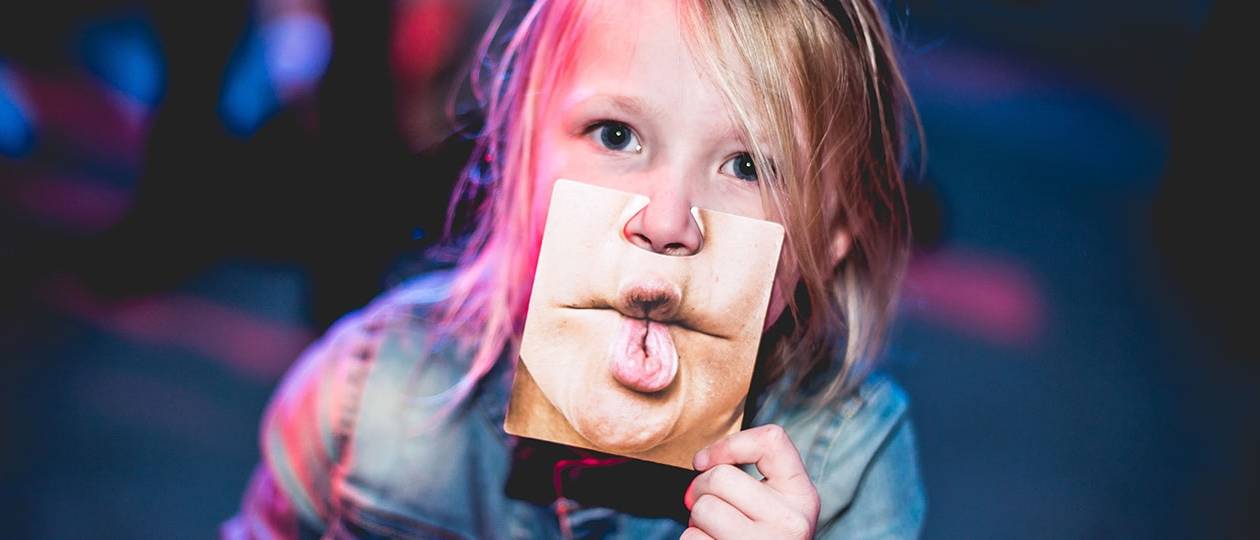
To fix the problem of deepfakes we must treat the cause, not the symptoms
Opinion + AnalysisRelationshipsScience + Technology
BY Matthew Beard The Ethics Centre 5 DEC 2019
This article was written for, and first published by The Guardian. Republished with permission.
Once technology is released, it’s like herding cats. Why do we continue to let the tech sector manage its own mess?
We haven’t yet seen a clear frontrunner emerge as the Democratic candidate for the 2020 US election. But I’ve been interested in another race – the race to see which buzzword is going to be a pivotal issue in political reporting, hot takes and the general political introspection that elections bring. In 2016 it was “fake news”. “Deepfake” is shoring up as one of the leading candidates for 2020.
This week the US House of Representatives intelligence committee asked Facebook, Twitter and Google what they were planning to do to combat deepfakes in the 2020 election. And it’s a fair question. With a bit of work, deepfakes could be convincing and misleading enough to make fake news look like child’s play.
Deepfake, a portmanteau of “deep learning” and “fake”, refers to AI software that can superimpose a digital composite face on to an existing video (and sometimes audio) of a person.
The term first rose to prominence when Motherboard reported on a Reddit user who was using AI to superimpose the faces of film stars on to existing porn videos, creating (with varying degrees of realness) porn starring Emma Watson, Gal Gadot, Scarlett Johansson and an array of other female celebrities.
However, there are also a range of political possibilities. Filmmaker Jordan Peele highlighted some of the harmful potential in an eerie video produced with Buzzfeed, in which he literally puts his words in Barack Obama’s mouth. Satisfying or not, hearing Obama call US president Trump a “total and complete dipshit” is concerning, given he never said it.
Just as concerning as the potential for deepfakes to be abused is that tech platforms are struggling to deal with them. For one thing, their content moderation issues are well documented. Most recently, a doctored video of Nancy Pelosi, slowed and pitch-edited to make her appear drunk, was tweeted by Trump. Twitter did not remove the video, YouTube did, and Facebook de-ranked it in the news feed.
For another, they have already tried, and failed, to moderate deepfakes. In a laudably fast response to the non-consensual pornographic deepfakes, Twitter, Gfycat, Pornhub and other platforms quickly acted to remove them and develop technology to help them do it.
However, once technology is released it’s like herding cats. Deepfakes are a moving feast and as soon as moderators find a way of detecting them, people will find a workaround.
But while there are important questions about how to deal with deepfakes, we’re making a mistake by siloing it off from broader questions and looking for exclusively technological solutions. We made the same mistake with fake news, where the prime offender was seen to be tech platforms rather than the politicians and journalists who had created an environment where lies could flourish.
The furore over deepfakes is a microcosm for the larger social discussion about the ethics of technology. It’s pretty clear the software shouldn’t have been developed and has led – and will continue to lead – to disproportionately more harm than good. And the lesson wasn’t learned. Recently the creator of an app called “DeepNude”, designed to give a realistic approximation of how a woman would look naked based on a clothed image, cancelled the launch fearing “the probability that people will misuse it is too high”.
What the legitimate use for this app is, I don’t know, but the response is revealing in how predictable it is. Reporting triggers some level of public outcry, at which suddenly tech developers realise the error of their ways. Theirs is the conscience of hindsight: feeling bad after the fact rather than proactively looking for ways to advance the common good, treat people fairly and minimise potential harm. By now we should know better and expect more.
“Technology is a way of seeing the world. It’s a kind of promise – that we can bring the world under our control and bend it to our will.”
Why then do we continue to let the tech sector manage its own mess? Partly it’s because it is difficult, but it’s also because we’re still addicted to the promise of technology even as we come to criticise it. Technology is a way of seeing the world. It’s a kind of promise – that we can bring the world under our control and bend it to our will. Deepfakes afford us the ability to manipulate a person’s image. We can make them speak and move as we please, with a ready-made, if weak, moral defence: “No people were harmed in the making of this deepfake.”
But in asking for a technological fix to deepfakes, we’re fuelling the same logic that brought us here. Want to solve Silicon Valley? There’s an app for that! Eventually, maybe, that app will work. But we’re still treating the symptoms, not the cause.
The discussion around ethics and regulation in technology needs to expand to include more existential questions. How should we respond to the promises of technology? Do we really want the world to be completely under our control? What are the moral costs of doing this? What does it mean to see every unfulfilled desire as something that can be solved with an app?
Yes, we need to think about the bad actors who are going to use technology to manipulate, harm and abuse. We need to consider the now obvious fact that if a technology exists, someone is going to use it to optimise their orgasms. But we also need to consider what it means when the only place we can turn to solve the problems of technology is itself technological.
Big tech firms have an enormous set of moral and political responsibilities and it’s good they’re being asked to live up to them. An industry-wide commitment to basic legal standards, significant regulation and technological ethics will go a long way to solving the immediate harms of bad tech design. But it won’t get us out of the technological paradigm we seem to be stuck in. For that we don’t just need tech developers to read some moral philosophy. We need our politicians and citizens to do the same.
“At the moment we’re dancing around the edges of the issue, playing whack-a-mole as new technologies arise.”
At the moment we’re dancing around the edges of the issue, playing whack-a-mole as new technologies arise. We treat tech design and development like it’s inevitable. As a result, we aim to minimise risks rather than look more deeply at the values, goals and moral commitments built into the technology. As well as asking how we stop deepfakes, we need to ask why someone thought they’d be a good idea to begin with. There’s no app for that.
Ethics in your inbox.
Get the latest inspiration, intelligence, events & more.
By signing up you agree to our privacy policy
You might be interested in…
Explainer
Relationships
Ethics Explainer: Existentialism
WATCH
Relationships
Deontology
Opinion + Analysis
Health + Wellbeing, Relationships
Is it ok to visit someone in need during COVID-19?
Opinion + Analysis
Relationships, Society + Culture


